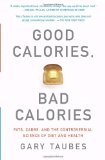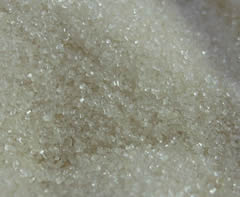Thank goodness scientists are finally looking at the dangers of sugar consumption! It sounds counterintuitive: cut back on added sugar if you want to lower your cholesterol levels, but new research is finally supporting what a few people already knew.
For years, mainstream thinking was to cut back on red meat and saturated fat to lower cholesterol because it seemed reasonable to believe that the fat one eats in the diet is directly related to cholesterol.
It also seems intuitively obvious that two objects of different weights will fall at different speeds, or so Aristotle thought.
What do long-held ideas for high cholesterol have to do with Aristotle’s hypothesis of falling objects? Lack of rigorous experimentation and incorrect conclusions.
The ideas of Aristotle, who lived from 384 BC to 322 BC, unfortunately, survived until Galileo Galilei (lived 1564-1642) performed actual experiments to prove otherwise. Aristotle didn’t perform any experiments, he just based his hypothesis of falling objects on observation and his own reason.
Unfortunately, in the area of cholesterol, obesity, and nutrition, the ideas of Ancel Keys, a professor of physiology from the University of Minnesota, have survived since 1970. Keys promoted his own beliefs without the proper scientific evidence, and, at times, he threw out or ignored data that contradicted his beliefs. Because Keys was a powerful figure, he pushed his ideas and belittled those who disagreed with him and the evidence they presented.
 Gary Taubes, author of Good Calories, Bad Calories: Fats, Carbs, and the Controversial Science of Diet and Health (Vintage) and one of several critics of Keys, describes various studies where Keys falsified his conclusions by selecting data. Taubes, in fact, presents plenty of evidence that added sugar, not only elevates cholesterol, but also causes many of the Western diseases, such as high blood pressure. He called for appropriate studies to be performed to test the detrimental affects of refined carbs (sugar and flour).
Gary Taubes, author of Good Calories, Bad Calories: Fats, Carbs, and the Controversial Science of Diet and Health (Vintage) and one of several critics of Keys, describes various studies where Keys falsified his conclusions by selecting data. Taubes, in fact, presents plenty of evidence that added sugar, not only elevates cholesterol, but also causes many of the Western diseases, such as high blood pressure. He called for appropriate studies to be performed to test the detrimental affects of refined carbs (sugar and flour).
The more I research nutrition, the more evidence I read that sugar contributes to unhealthy cholesterol levels and other Western diseases. Now, the July 2010 issue of Food & Fitness Advisor from Cornell University’s Weill Cornell Medical College cites more evidence implicating sugar. The article “Added Sugars May Contribute to Unhealthy Cholesterol Levels” references a study published in the April 21, 2010 issue of the Journal of the American Medical Association titled “Caloric Sweetener Consumption and Dyslipidemia Among US Adults” (abstract). (Dyslipidemia is a disruption in the amount of lipids in the blood.) The study found that increased sugar consumption led to increased triglycerides and lower levels of HDL (“good” cholesterol). Also, for women, LDL (“bad” cholesterol) levels were higher while there were no significant LDL trends for men. According to the American Heart Associations, article “Women, Heart Disease and Stroke,” having high triglycerides may increase the risk for women more than for men.
Taubes makes a connection in his book between cholesterol levels that are too low and higher cancer rates. I hope we will see additional responsible research on many of the topics he discusses.
What about red meat? Does it raise cholesterol? The studies I’ve read are flawed, and Taubes points this out, too. Red meat is not necessarily bad. If it’s from animals who are force-fed an unnatural diet like corn, it is unhealthy; however, there is research to suggest that red meat from cattle with natural, grass-fed diets is actually healthy. In fact, grass-fed cattle may be healthier to eat than corn-fed, stressed-out chickens. See “Health Benefits of Grass-Fed Products” at Eat Wild. Grass-fed and pastured animal products have higher levels of omega-3 fatty acids (as in fish oil); Vitamin E; conjugated linoleic acid (CLA), which prevents cancer; and other vitamin and minerals. They also have lower levels of cholesterol and saturated fat.
